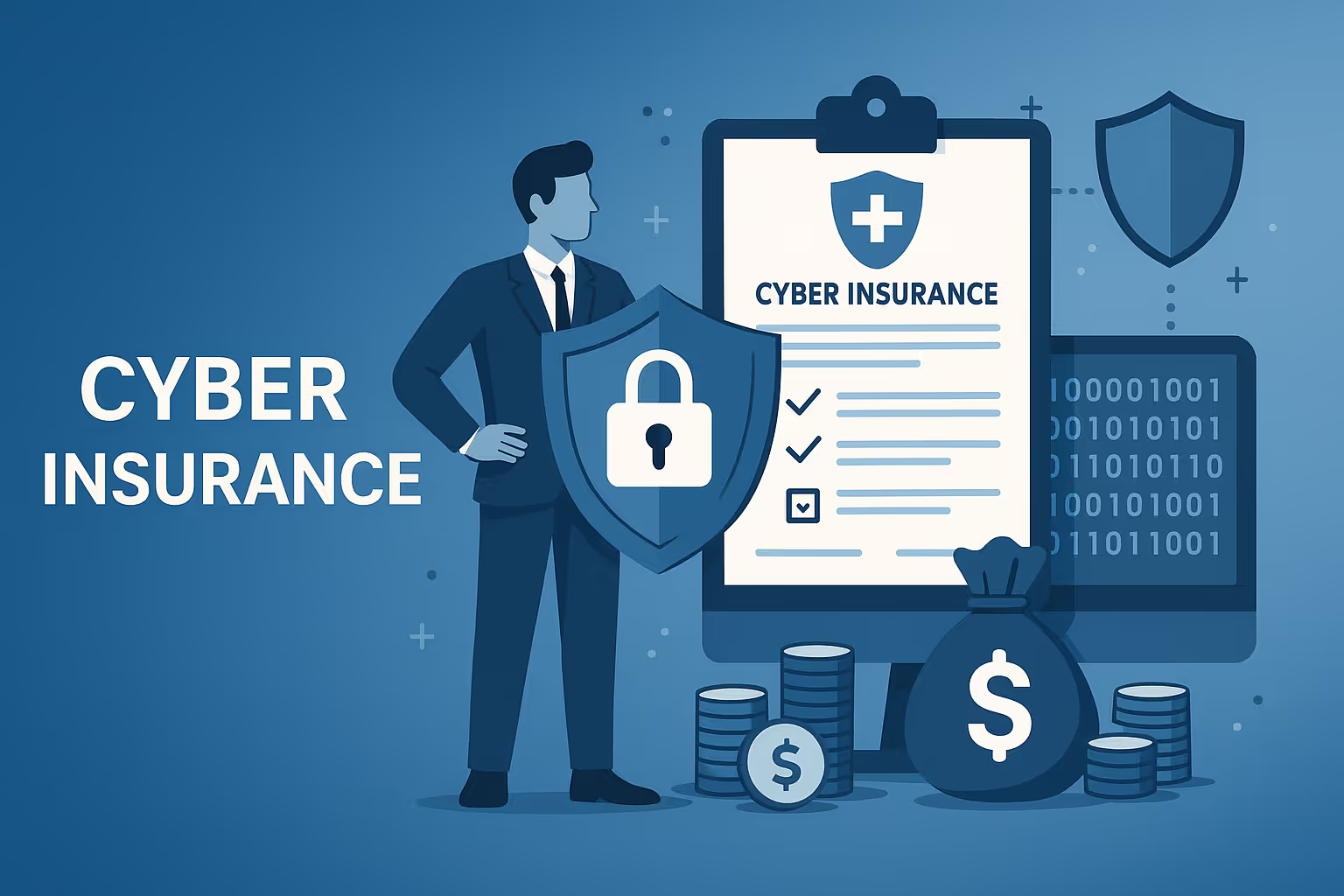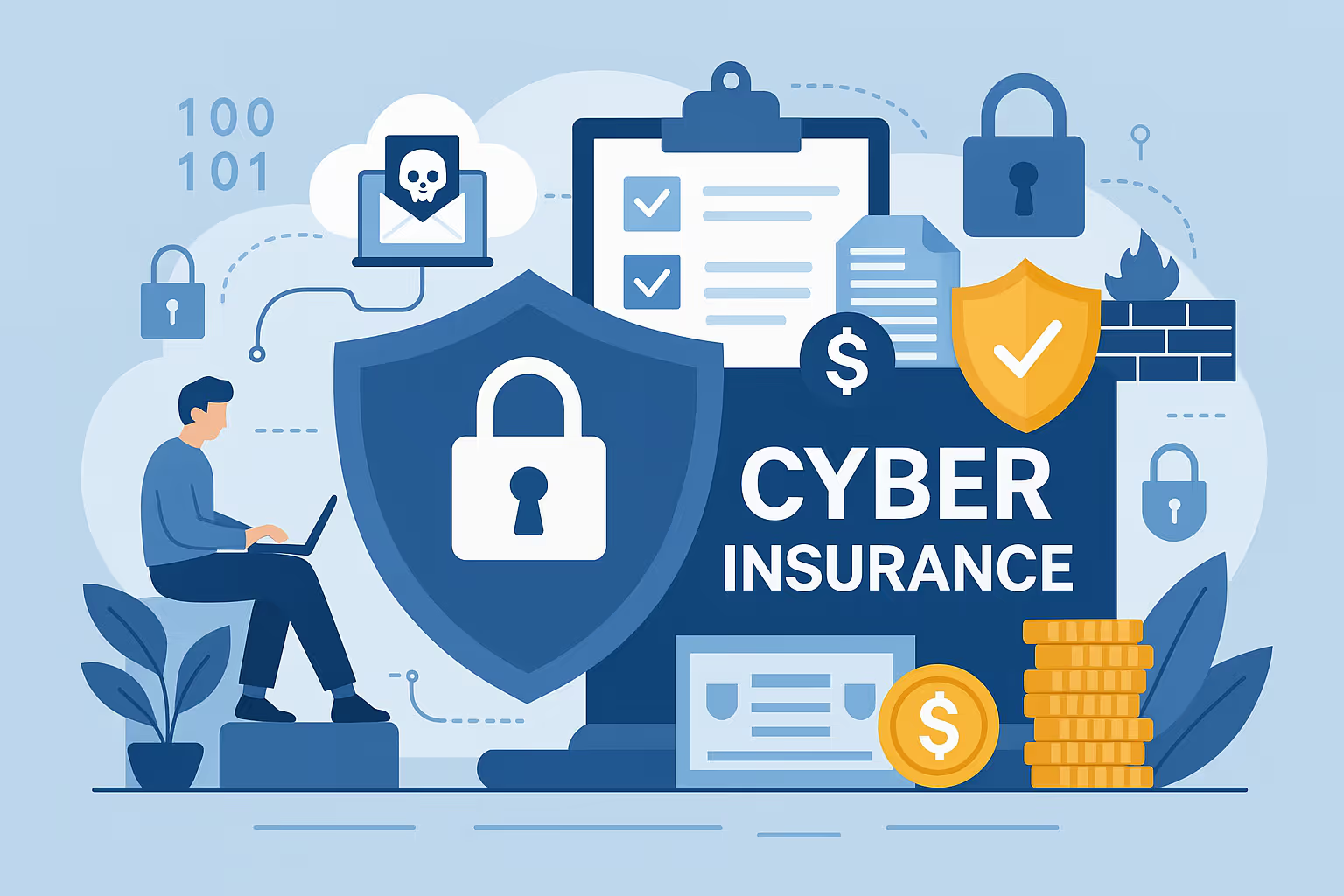
How to get...

Who provides...
When evaluating cyber insurance providers for Healthcare in the United States, organizations should look for:


Why need...
The U.S. Healthcare sector faces unique cyber risks due to the vast amounts of sensitive patient data, complex networks, and regulatory pressures. Breaches can expose personal health information (PHI), which is highly attractive to cybercriminals, and lead to significant financial, legal, and reputational damages. This is why cyber insurance for Healthcare in the United States is essential.
Cyber insurance provides financial protection by covering incident management costs, forensic investigations, legal liabilities, and public relations efforts. This targeted coverage ensures that healthcare organizations can recover from attacks more efficiently, maintain regulatory compliance, and continue providing essential services without compromising patient trust.
Build Security with OCD Tech That Meets the Standard — and Moves You Forward
Contact Us
US Healthcare faces cyber risks. Strict protocols secure insurance. Underwriters verify data. Compliance ensures coverage.
Cyber insurance requirements for Healthcare mandate that organizations provide detailed documentation of their security policies, procedures, and risk assessments. Insurers evaluate these documents to confirm that robust cybersecurity frameworks are in place. Evidence of documented policies directly influences eligibility and may lower premiums by demonstrating proactive risk management.
This requirement involves verifying that advanced technical safeguards are in place. For cyber insurance requirements for Healthcare, insurers review technical controls like firewalls, intrusion detection systems, encryption solutions, and endpoint security measures to assess risk exposure.
Insurers require concrete evidence of compliance with healthcare-specific regulations, including HIPAA. Maintaining regulatory compliance is a cornerstone of cyber insurance requirements for Healthcare, ensuring that personal health information is adequately protected.
A robust incident response plan, coupled with an accurate record of past cyber incidents, is critical. Insurers check this as a core cyber insurance requirements for Healthcare element to evaluate the organization’s preparedness and historical vulnerability.
Regular cybersecurity training and robust access management are essential, especially for protecting sensitive patient data. As part of cyber insurance requirements for Healthcare, insurers assess how well employees are educated on cybersecurity best practices and if effective controls are in place to limit access to critical systems.
Secure Your Business with Expert Cybersecurity & Compliance Today
Contact Us


Differences by State...
When purchasing cyber insurance for Healthcare, organizations must understand that regulations and requirements vary substantially by state. These differences impact everything from policy coverage limits and premiums to compliance obligations and risk management strategies.
Organizations in the Healthcare sector need to evaluate cyber insurance policies by considering:
Ultimately, healthcare organizations must navigate these state-specific differences by closely scrutinizing policy details and ensuring that both their cybersecurity protocols and insurance coverage align with local requirements. This proactive approach not only helps in managing legal and regulatory risks but also in creating a resilient defense against cyber threats.

Compliance & Frameworks...
Organizations in the U.S. Healthcare sector must align their security practices with NIST CSF and ISO 27001 to demonstrate a strong cybersecurity posture. The NIST Cybersecurity Framework (CSF) provides guidelines to identify, protect, detect, respond, and recover from cyber threats. Meanwhile, ISO 27001 sets an international standard for establishing, maintaining, and continually improving an information security management system (ISMS). Adhering to these frameworks helps companies manage risks, which in turn shapes underwriting requirements and can lower premium costs associated with cyber insurance for Healthcare.
For Healthcare organizations, HIPAA (Health Insurance Portability and Accountability Act) is of paramount importance. HIPAA mandates robust measures for protecting electronic personal health information (ePHI) and sets standards for privacy and security. Compliance with HIPAA not only shields patient data but also influences how insurers assess risk, with non-compliance potentially leading to higher premiums. Additionally, while GLBA (Gramm-Leach-Bliley Act) is more tailored to the financial industry, Healthcare organizations that handle financial data may also align with its requirements to further demonstrate comprehensive risk management practices.
State-specific regulations further refine the requirements for cybersecurity. For instance, NYDFS (New York Department of Financial Services) imposes stringent cybersecurity requirements on organizations operating in New York, affecting how risk is evaluated and insured. Likewise, CCPA (California Consumer Privacy Act) influences practices around data privacy and protection. These mandates ensure that companies maintain high standards of security, which directly impacts their cyber insurance underwriting and premium costs. By integrating these state-level compliance requirements, insurers have a better view of an organization’s risk profile and are able to offer more competitive premiums.
The intersection of global frameworks, industry-specific regulations, and state mandates directly influences cyber insurance policies in the Healthcare sector. Important factors include:
Overall, a strong compliance posture not only safeguards patient information but also translates into more favorable cyber insurance terms, ultimately supporting the financial and operational resilience of Healthcare organizations.

Audit. Security. Assurance.
IT Audit | Cybersecurity | IT Assurance | IT Security Consultants – OCD Tech is a technology consulting firm serving the IT security and consulting needs of businesses in Boston (MA), Braintree (MA) and across New England. We primarily serve Fortune 500 companies including auto dealers, financial institutions, higher education, government contractors, and not-for-profit organizations with SOC 2 reporting, CMMC readiness, IT Security Audits, Penetration Testing and Vulnerability Assessments. We also provide dark web monitoring, DFARS compliance, and IT general controls review.
Contact Info
.svg)
OCD Tech
.svg)
25 BHOP, Suite 407, Braintree MA, 02184
.svg)
844-623-8324
.svg)
https://ocd-tech.com
Follow Us
Videos
Check Out the Latest Videos From OCD Tech!
Services
SOC Reporting Services
– SOC 2 ® Readiness Assessment
– SOC 2 ®
– SOC 3 ®
– SOC for Cybersecurity ®
IT Advisory Services
– IT Vulnerability Assessment
– Penetration Testing
– Privileged Access Management
– Social Engineering
– WISP
– General IT Controls Review
IT Government Compliance Services
– CMMC
– DFARS Compliance
– FTC Safeguards vCISO